|
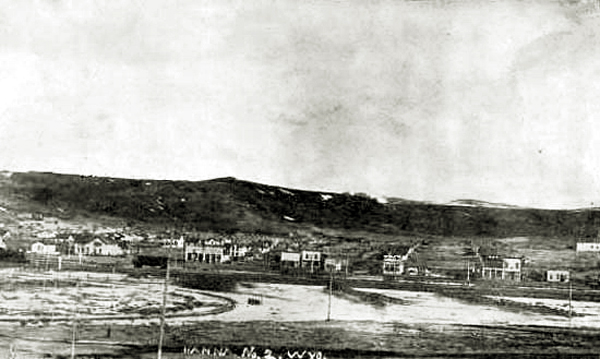
Hanna No. 2, 1910
An important organization in Hanna was the United Mine Workers. Labor Day was a two day affair. Thus, it was a major patriotic
holiday with parades, races, sporting events, dances, free food for the kids, and free movies.
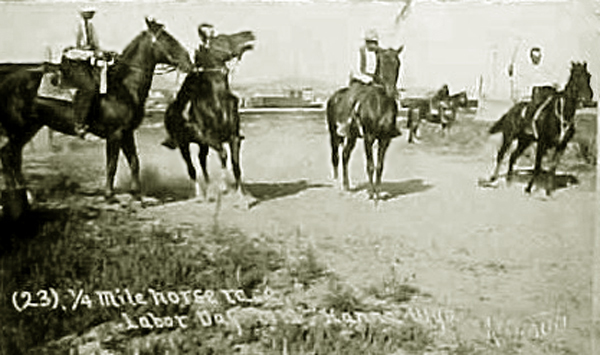
Labor Day Race, 1912.
In 1918, E. Richard shipp of Casper was the featured speaker. Shipp, a lawyer, was active in the labor movement and was a charter
member of the Casper Typographical Union. He was instrumental in forming and served as secretary for the permanent education fund of the State Federation of Labor
and the United Mine Workers of District 22.
He was the author of a number of legal texts and several volumes of western poetry. For an example of
Shipp's poetry see Sheepherding.
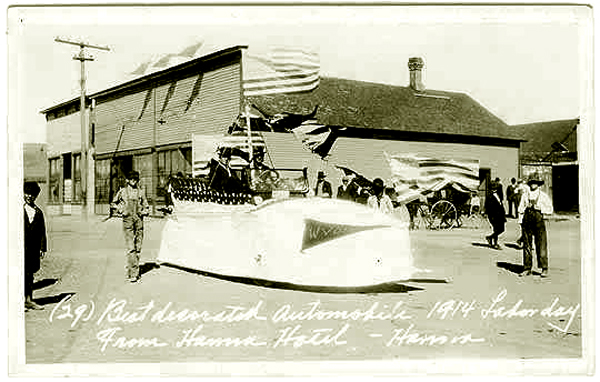
Labor Day Parade, 1914.
Perhaps one of the more memorable events for the United Mine Workers in Hanna was when the train bearing
John L. Lewis stopped. The back platform of the train was all decorated out and Lewis gave a speech from the
back platform. The regard that the miners had for John L. Lewis could not be matched. It reminds the writer of an
acquaintance whose father was a coal miner. The family lived in a company owned tarpaper shack. When the acquaintance
was about six years old, in class the teacher asked, "Does anyone know who the first president of the United States was?"
One little girl raised her hand and was called on. "George Washington." The teacher then asked,
"Does anyone know who the sixteenth president of the United States was?" Another student answered,
"Abraham Lincoln." The teacher then asked, "Who is the current president of the United States?" The acquaintance raised his hand and was called upon.
Sure in his answer, he responded, "John L. Lewis?" He later recounted that it was the most disappointing day of his
life when the teacher told him he was wrong, she lied and said it was someone by the name of
Harry Truman. The second most disappoing day of his life was when he went home and told his father that
the teacher had lied and his father told him that John L. Lewis was not president of the United State.
Several biographies of Lewis indicate that Lewis had worked in Hanna in 1903. Lewis claimed that the disaster at Hanna
affected him for the rest of his life.
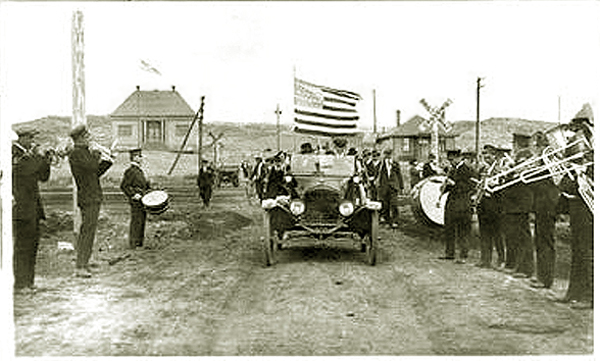
Labor Day Parade, 1920.
The town band is lined up on both sides of the lead of the parade. The uniforms for the band were provided by the
Union Pacific Coal Company. The band travelled to other areas of the county including the celebration of the
coming of the railroad to Saratoga in 1907. It also appeared at Frontier Days in Cheyenne. In addition to the band, the town had its own orchestra which played for
dances in Fort Steele and at the Elks Lodge in Rawlins.
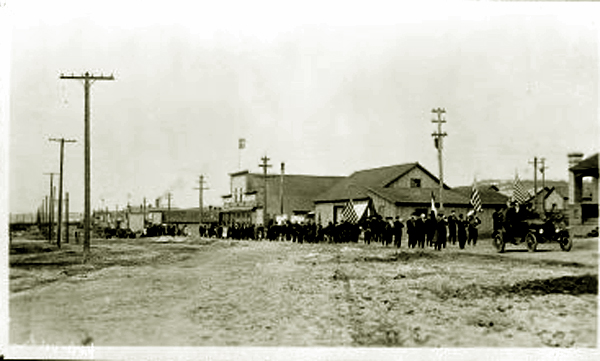
Labor Day Parade in front of company store, approx. 1920.
The band also had several offshoots, among them the Hanna Cornet Band.
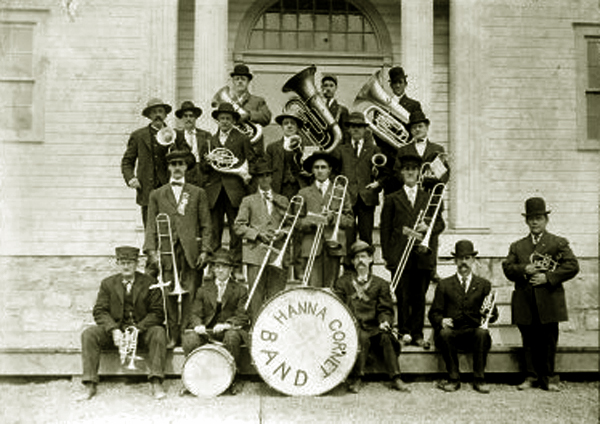
Hanna Cornet Band, undated.
Another offshoot from the town band was Mark Jackson (1903-1959). At age 17 Jackson formed his own dance band, "the Little Six." The Little Six
band played at various places around the state. The Little Six provided a
professional appearance wearing tuxedos and had streamers for its bandstand. The Little Six evolved into a "big band," sound depicted above, which played
throughout southern Wyoming.
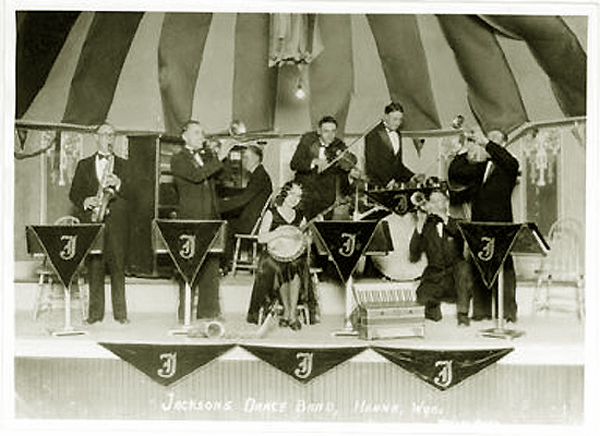
Mark Jackson's "little Six" Dance Band, Photo by Frank J. Meyers, undated.
After World WAr II, taste in music changed from the Jaza Era. Mark Jackson's music also changed. In 1947, he
purchased the Elk Mounain Hotel and Garden Spot Pavillion. In addition to his own band performing at
Elk Mountain, he was able to persuade top bands traveling from Denver to Salt Lake City to stop off for a
gig. Some of those performing at the Garden Spot included Harry James, Bob Willis, Tommy Dorsey, Gene Krupa, Lawrence Welk, Les Brown,
and Tex Williams. The Pavillion was dismantled in 2002.
Next Page: The Hanna Mine Disasters of 1903 and 1908.
|